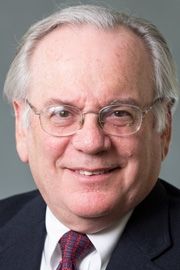Mark Israel Joins the Israel Cancer Research Fund as National Executive Director
A nationally recognized leader in cancer research, Mark A. Israel, MD, has joined the Israel Cancer Research Fund as national executive director. The ICRF is the largest nonprofit organization dedicated exclusively to funding cancer research in Israel at present.
Mark A. Israel, MD

Mark A. Israel, MD
A nationally recognized leader in cancer research, Mark A. Israel, MD, has joined the Israel Cancer Research Fund (ICRF) as national executive director. The ICRF is the largest nonprofit organization dedicated exclusively to funding cancer research in Israel at present.
Israel is currently a professor of pediatrics, medicine, and molecular and systems biology at the Geisel School of Medicine at Dartmouth College.
Previously, he served as the director of Dartmouth’s National Cancer Institute (NCI)designated Comprehensive Cancer Center, the Norris Cotton Cancer Center from 2001 to 2016. He was responsible for delivering comprehensive clinical care to more than 30,000 patients annually and managing the cancer center’s development efforts, raising as much as $10 million per year. Additionally, he organized Dartmouth’s cancer research efforts.
“Mark Israel is well equipped to communicate Israel’s critical role as a major source of innovation and discovery in the understanding and treatment of cancer,” said Rob Densen, president of ICRF International, in a statement. “We are thrilled to have a clinician, researcher, and administrator of Mark’s caliber and clear commitment to the cause as our national executive director. We believe that this appointment reflects on the strength and appeal of the ICRF mission and augurs well for the future.”
Israel has been a volunteer member of ICRF’s Scientific Review Panel and the chair of the panel for evaluating translational cancer research proposals. He has served on numerous boards, editorial boards, and advisory committees, including several US NCI-designated Comprehensive Cancer Center scientific advisory boards. Additionally, he is the author or co-author of hundreds of scholarly papers.
“Cancer research has never been more exciting or promisingand that is particularly true in Israel,” Israel said on accepting this position. “Israeli science knows no bounds. ICRF provides a singular opportunity to help build more recognition and support for the world-class cancer research of Israeli scientists, and to arm and empower its finest practitioners with the resources necessary to change the world.”
He has been recognized with numerous awards, including the C. Everett Koop Courage Award, the Farber Award from the American Association of Neurological Surgeons, the Heinz Karger Memorial Foundation Prize, the Kathleen M. Plant Distinguished Professorship at the University of California, San Francisco, and the US Public Health Service Commendations Medal. Additionally, he is an elected fellow of the American Association for the Advancement of Science and holds 3 patents.
“Mark Israel’s deep commitment to cancer research will help raise awareness of Israel’s world-class cancer research and the need for additional funding to accelerate discovery. I believe Mark brings the tools, talent, and capacity to tell the important story of Israeli cancer research,” said Robert B. Diasio, MD, director of the Mayo Clinic Cancer Center, in a statement.
Israel received his medical degree from Albert Einstein College of Medicine in 1973. He went on to complete his residency at the Children’s Hospital Medical Center in Boston, Massachusetts and later moved to the National Institutes of Health to pursue research at the National Institute of Allergy and Infectious Diseases. In 1981, he completed his training in pediatric oncology at the NCI, where he ultimately became head of the Molecular Genetics Section of the Pediatrics Branch in 1984, among other positions.